About
How do children and companion animals build their mutual relationships in daily life, in the context of their families and home? To what extent do these relations challenge the species barrier, or rather reproduce it? And how does this impact the shared lives of children and animals? Between 2018 and 2022, project CLAN tried to answer these questions by studying 24 Portuguese multispecies families, following a multi-step, multi-method qualitative design, which included direct observation, in-depth interviews to children and parents, visual methods, photo-eliciting interviews and participatory methods. It is now time to share some of our work: ideas and results; but also persistent and restless questions.
In this conference we bring together invited experts in the field and the researchers involved in the project to discuss the topic. In the first day, we plunge into the theoretical reasoning around the specificities of children-animal relations, and their status in the field. We also present some of our results, putting them in perspective with the state of the art. In the second day, we make way to one of our dearest dimensions in the project: how to go beyond academia, and reach wider audiences, of all ages and backgrounds. We discuss how to engage and give back to the participants. And how art and science can work together to communicate a multispecies, more-than-human, approach, which may have an impact on the wellbeing of children, animals, and families.
Date
22 and 23 September 2022
Time
14h00 – 18h00 Lisbon time
online
ZOOM
Invited Keynote
Pauliina Rautio
University of Oulu, Finland
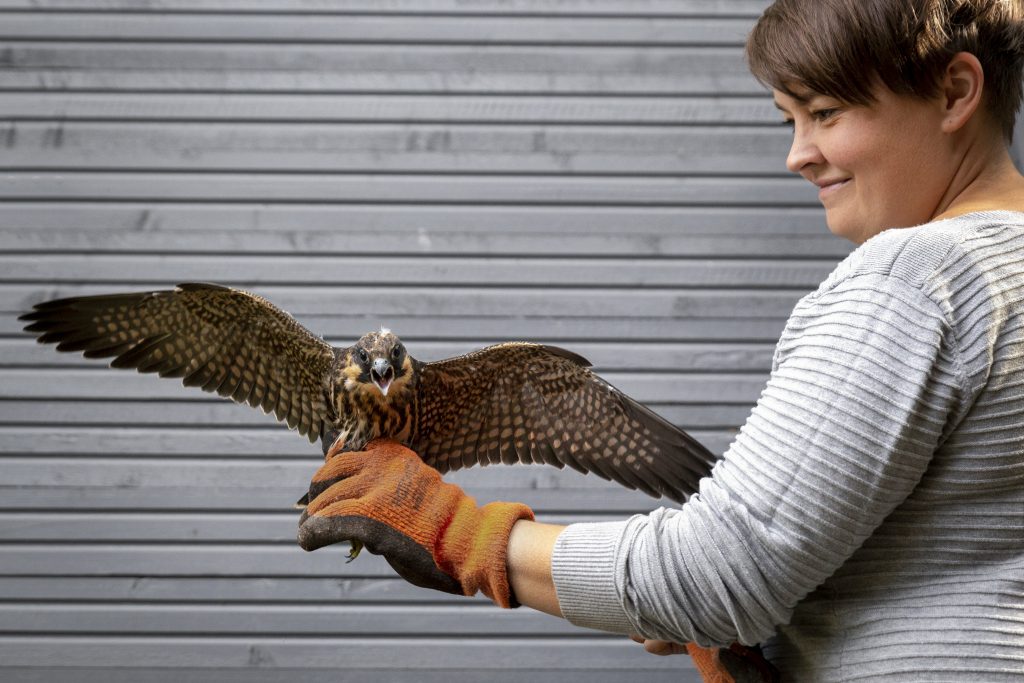
Four stories of significant animal relations – Four friendships?
This talk offers four distinct examples of children’s relations to other animals, outside of their home sphere, that could be considered as friendships but that also contest simplified ideas of what being a friend entails and how it is performed. Through these examples including courtyard earthworms, invented bird species, someone else’s horse, and a mouse stomped to death, theories and conventions of studying human-animal attachments and interest are discussed. Following the lead of children and co-creating research practices with them, the four examples – spanning four different research projects – highlight children’s views and performances of significant animal relations in particular. Based on these discussions, the usefulness of the notion of ‘friendship’ in studying or conceptualising multispecies relations altogether is also explored.
Bio
Pauliina Rautio (PhD) is a Senior Research Fellow at the University of Oulu and an Adjunct Professor of Education at the University of Helsinki. Her transdisciplinary research team AniMate includes scholars of education, ecology, and biology, collaborating with artists working on science fiction literature and biological arts. Rautio and her group tackle the anthropogenic causes of biodiversity loss by producing in-depth theoretical-empirical studies exploring processes of becoming and being human with other animals. This is done by combining ecological citizen science with education, human-animal studies and the arts, and utilising post-qualitative and multispecies (non-anthropocentric) methodologies. Ongoing projects include CitiRats (2020-2024) and Fellow Feelings (2022-2025), located in the shared communities of young people and inconvenient or disliked other animals such as rats, pigeons, slugs, spiders, or wasps.
Program
22 september
2:00 pm
Opening address
Verónica Policarpo, Pi of Project CLAN
2:10 - 3:15 pm
Four stories of significant animal relations – Four friendships?
Invited Keynote
Pauliina Rautio, University of Oulu, Finland
3:45 - 4:00 pm
Break
4:00 - 6:00 pm
CLAN’s multispecies childhoods: results & methods
ClAN Team
Verónica Policarpo (PI), Ana Nunes Almeida, Clara Venâncio, Henrique Tereno, Joana Catela, Maria Saari, Mónica Truninger, Teresa Líbano Monteiro, Vasco Ramos
Commentators
Mara Miele, Cardiff University
Dafna Shir-Vertesh, Achva College
Chair: Leticia Fantinel, UFES
23 september
2:00 - 3:45 pm
Going beyond: CLAN’s outreach (1)
1. We photographed how it is like to be a pet at home”: CLAN’s Exhibition and Catalogue
Verónica Policarpo & Clara Venâncio
2. Who is your CLAN? A toolkit for educators
Maria Saari & Clara Venâncio
2. Engaging participants and stakeholders: giving back through workshops
Teresa Libano Monteiro
Commentators
Melissa Nolas, Goldsmiths, University of London
Harry Eckman, World Cetacean Alliance
Chair: Monica Truninger, ICS-ULisboa
3:45 - 4:00 pm
Break
4:00 - 5:30 pm
Going beyond: CLAN’s outreach (2) Artists and scientists working together: art, creativity, insight
2. Launch / Film Screening
“Children & Animal Companions: Care, love and grief in multispecies families” by Just Wondering…
Q&A with: M. Martelli, writer & researcher at Just Wondering
2. Literature
Becky Tipper, Sociologist & Writer
3. Illustration for children
Joana Estrela, ilustrator & author
Commentators
Sofia Biscaia, Universidade de Aveiro
Pedro Neto, ICS-ULisboa
Chair: Rui Costa Lopes, ICS-ULisboa
5:30 - 6:00 pm
Closing remarks
Mapping the field: From Portugal Outbound
Kenneth Shapiro, Animals & Society Institute
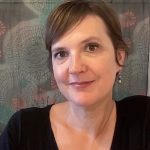
Becky Tipper
Writer & Researcher
Becky Tipper is a writer and researcher. Her fiction and essays have been published in magazines in the UK and US and have won awards. She has a PhD in sociology from the University of Manchester, and much of her previous academic research has explored interspecies relationships. Recently, Becky has been involved in several collaborations with social researchers, where she has written short stories inspired by data as a way to communicate research findings. She is currently working on a book about the uses of fiction and storytelling in research.

Dafna Shir-Vertesh
Achva College
Dafna Shir-Vertesh teaches at Achva College and co-chairs the Human-Animal Studies Israel community (HASI). Her research deals with multispecies relations in familial and communal spheres. Among her publications is “Flexible Personhood: Loving Animals as Family Members in Israel”, published in American Anthropologist in 2012.

Harry Eckman
World Cetacean Alliance
Harry Eckman is an international animal welfare specialist with 25 years’ experience. He is CEO of the World Cetacean Alliance, the world’s largest marine conservation partnership.
Prior to his role at the WCA, Harry co-founded Change For Animals Foundation (CFAF) and acted as expert consultant for several animal welfare organisations including the International Fund for Animal Welfare (IFAW), Four Paws International and Dogs Trust. Throughout his career, Harry has worked internationally with hundreds of locally based animal protection groups. His work has included providing guidance and support on strategic thinking, planning and capacity development for animal welfare and conservation NGOs; stray animal population management; campaigning to end the dog and cat meat trades; lobbying to end wildlife in captivity and the illegal wildlife trade; incorporating human behaviour change concepts into animal welfare and conservation programs; and improving welfare standards in shelters and veterinary facilities.
Harry was born in London but lives in Portugal with his wife, 3 cats and a dog.
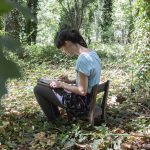
Joana Estrela
Illustrator
Born in Penafiel in 1990, Joana Estrela started drawing family portraits at an early age, writing funny subtitles to go along with them. Her methods haven’t changed a lot since: what motivates her to start a book is still the amusement that comes with it. She graduated from Faculdade de Belas Artes da Universidade do Porto with a degree in Communication Design (2012). In 2014, Plana Editor published her first book: Propaganda. In 2016, Planeta Tangerina published Mana, the winner of 1st Serpa Internacional Award for Picture Books.

Kenneth Shapiro
Board President, Animals & Society Institute
Kenneth Shapiro earned his BA from Harvard University and his PhD in clinical psychology from Duke University. He is cofounder of the Animals and Society Institute and founder of its predecessor organization– Psychologists for the Ethical treatment of Animals. He is founder and editor of Society and Animals: Journal of Human-Animal Studies; cofounder of Journal of Applied Animal Welfare Science; and editor of the Brill Human-Animal Studies book series. He is one of the developers of AniCare® Adult (Shapiro & Henderson, The identification, assessment and treatment of adults who abuse animals, 2016) and AniCare® Child (Shapiro, Randour, Krinsk, & Wolf, The assessment and treatment of children who abuse animals, 2013). Shapiro is also the author of Animal Models of Human Psychology: Critique of Science, Ethics and Policy and articles on the state of the field, vegetarianism, animal protection activism, and the link.

Leticia Fantinel
Universidade Federal do Espírito Santo, Brasil
Leticia Fantinel is a professor at the Department and Postgraduate Program in Administration in the Federal University of Espírito Santo, Brazil. PhD in Business Administration (Federal University of Bahia, Brazil, with internship at Paris IX University, France), Master and Bachelor in Business Administration (Federal University of Rio Grande do Sul, Brazil). Coordinator of the Study Group on Symbolism and Daily Practices in Organizations – GESIP/UFES. Coordinator of Work Group “Organizational and socio-environmental dynamics in the Anthropocene” at the Association for Research in Administration in Brazil (Anpad). Her research interests include: relationships between animals and organizations, organizational practices involving non-human beings, multispecies studies. Between 2022 and 2023, Letícia is a Visiting Researcher at the HAS-Hub and ICS-ULisboa, where she develops a post-doctoral research in collaboration with project Liminal Becomings: reframing human-animal relations in natural disasters. [CEECIND/02719/2017]. Liminal Becomings: reframing human-animal relations in natural disasters [CEECIND/02719/2017].
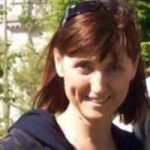
Mara Miele
Cardiff University
Professor in Human Geography, Director of Postgraduate Research
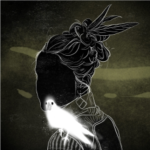
M. Martelli
Writer & Researcher at Just Wondering…
M. Martelli writes and researches towards an antispeciesist, queer, feminist, post-capitalist world. She is co-producer and writer at just wondering…, where she creates, along with Aron Nor and Mina Mimosa, short films and animated essays critical to the status-quo. She is also a Production Associate for the Student Journal of Vegan Sociology and is currently independently researching multispecies coexistence in sanctuary and urban settings. She lives with hopeful pessimism as a response to this unjust world, marvels at plants blooming and dogs napping.
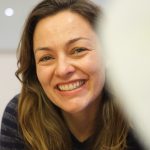
Melissa Nolas
Goldsmiths, University of London
Melissa Nolas teaches in the Department of Sociology at Goldsmiths, University of London. She is the co-director of the research programme Childhood Publics and of the Children’s Photography Archive. She also co-edits the online journal entanglements: experiments in multimodal ethnography. Her most recent research focuses on the relationship between childhood and public life, multimodal ethnography, and publics creating methodologies. Prior to this she spent a number of years critically researching welfare, well-being and social support for children, young people, and women/mothers.
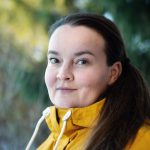
Pauliina Rautio
University of Oulu, Finland
Pauliina Rautio (PhD) is a Senior Research Fellow at the University of Oulu and an Adjunct Professor of Education at the University of Helsinki. Her transdisciplinary research team AniMate includes scholars of education, ecology, and biology, collaborating with artists working on science fiction literature and biological arts. Rautio and her group tackle the anthropogenic causes of biodiversity loss by producing in-depth theoretical-empirical studies exploring processes of becoming and being human with other animals. This is done by combining ecological citizen science with education, human-animal studies and the arts, and utilising post-qualitative and multispecies (non-anthropocentric) methodologies. Ongoing projects include CitiRats (2020-2024) and Fellow Feelings (2022-2025), located in the shared communities of young people and inconvenient or disliked other animals such as rats, pigeons, slugs, spiders, or wasps.

Pedro Neto
ICS-ULisboa
Pedro Figueiredo Neto (1984), anthropologist and filmmaker. He is an architect by training (FAUP, Portugal), and obtained his PhD in Anthropology by the École des Hautes Études en Sciences Sociales (EHESS-Paris) and ISCTE-IUL in 2016. He is a researcher at the ICS-ULisboa since 2017. Drawing on a solid ethnographic approach, his research focus on topics such as forced displacement, borders, mobility, development, extractivism, refuge, and violence, namely in the African context (Angola, Zambia, Mozambique, Guinea-Bissau, Senegal). In addition to published articles in international journals, the multimodal strand has been gaining prominence in his work, with a set of authored audiovisual essays, documentary and fiction films, soundscapes and artistic installations.

Rui Costa Lopes
ICS-ULisboa
Rui Costa Lopes obtained his degree in Social and Organizational Psychology from ISCTE in 2004. In 2009, he obtained his PhD in Social Psychology from ISCTE in collaboration with the University of Colorado at Boulder.
Collaborates with ICS since 2004 within projects related with social norms, prejudice, intergroup relations and social attitudes and behaviors.
Between 2009 and 2015, developed post doctoral research in ICS in collaboration with the Radboud University in Nijmegen (The Netherlands) on the phenomenon of implicit racial prejudice and the influence of social norms on its emergence. Other topics studied in this period focused the effects of multicultural and colorblind ideologies on attitudes towards immigrant groups.
Since February 2015, is FCT Research Fellow with a project that addresses the influence of meritocracy on socially critical decisions (moral dilemmas, medical diagnoses, shooting decisions).
He is part of the Directive Board of LiSP – Lisbon PhD in Social Psychology.

Sofia Biscaia
Universidade de Aveiro
Maria Sofia Pimentel Biscaia holds a doctoral degree in Literature by the University of Aveiro (2005). She has conducted interdisciplinary research in the fields of visual, gender and postcolonial studies, including on South Asian, African, British and Luso-American authors. She has published extensively in domestic and international journals and is the author of the book Postcolonial and Feminist Grotesque: Texts of Contemporary Excess. She also co-edited the collection of essays Intercultural Crossings: Conflict, Memory, Identity. She is part of the international project Bodies in Transit 2 which addresses how bodies have been historically transformed through social relations, discourses, and technologies, by drawing from feminist, queer, postcolonial and posthumanist theories of the embodied self. She has been increasingly interested in Critical Animal Studies and has presented numerous papers in international conferences on related issues ranging from queer animality, food studies, advertising and national identity, feminist and postcolonial intersections. She has published among others “Loving Monsters: The Curious Case of Patricia Piccinini’s Posthuman Offspring” (2019) and “What Comes After the Woman: Becoming Plant in Han Kang’s The Vegetarian” (2019). The article “Of Mice and Women: Gendered and Speciesist Violence in Joyce Carol Oates’s ‘Martyrdom’” is forthcoming in 2021 in the volume Cultural Representations of Gender Vulnerability and Resistance published by Palgrave.
Currently she teaches at the University of Aveiro, Portugal.
Clan team

Verónica Policarpo (PI)
ICS-ULisboa
Link: https://www.ics.ulisboa.pt/en/pessoa/veronica-policarpo
ORCID: http://orcid.org/0000-0002-9245-1057
CIÊNCIA VITAE: https://www.cienciavitae.pt//C211-DB67-6F6F
Twitter: @VMPolicarpo
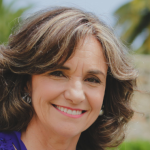
Ana Nunes de Almeida (Co-PI)
ICS-ULisboa
Sociologist and a researcher at the ICS-ULisboa. Her favourite sicentific themes are: children and childhood, family and schooling, children and animals, new ethical dilemmas in the research with children. She is currently the chair of the Scientific Council at ICS-ULisboa and a member of the Directive Commitee of the RN04 Children and Childhood, European Sociological Asssociation.

Clara Venâncio
ICS-ULisboa
Clara Venâncio graduated in Communication Design from the University School of Arts of Coimbra and concluded the first curricular year of the MA in Sound and Image with a specialization in Computer Animation from the Catholic University of Portugal. She holds a Master’s Degree in Product Design from the Superior School of Arts and Design of Caldas da Rainha where she completed the thesis “Animal Dignity – Development of Habitats for Domestic Animals” and the prototypes “Domus Petra” and “Locus Turi”. She attended the Post-Graduate course Animals & Society at the Institute of Social Sciences of the University of Lisbon and currently works as a Research Assistant in the CLAN project. She is interested in the interactions between humans, animals, and objects. Mainly in which way objects condition and affect the actions of humans and animals.

Henrique Tereno
ICS-ULisboa
Holds a bachelor’s degree in European Studies by the Faculty of Arts and Humanities of the University of Lisbon and a master’s degree in Anthropology by ISCTE/UTAD. Worked as a research assistant on the project CLAN – Children-Animal’s Friendships: challenging boundaries between humans and non-humans in contemporary societies” in the Institute of Social Sciences. Is a member of the Human-Animal Studies Hub, partaking in its activities and collaborating in the organization of events. Favorite research topics focus on the relations between humans and non-human animals. Is currently a PhD FCT fellowship holder (2020.05345.BD) in the OpenSoc Doctoral program in Sociology, with a project on the categorization that children make of non-human animals through their practices. e está a desenvolver uma tese sobre a categorização que as crianças fazem dos animais com quem se relacionam através das suas práticas.

Joana Catela
ICS-ULisboa
Joana Catela studied Social Anthropology at FCSH-Nova and Latin American Studies at Cambridge University. Between 2010 and 2011 she attended the post-graduate course “Health anthropology: cultural competence in clinical setting”. After a year working for the local administration, in 2018 he received a doctorate in Anthropology from ISCTE-IUL with the thesis “On the margins and in transit: mental health and good intentions in an IPSS on the outskirts of Lisbon”, based on intensive ethnographic fieldwork in a social housing neighborhood.
Between 2018 and 2019, she joined ICS-ULisboa as a postdoctoral researcher working for project “exPERts – Organizing planning knowledge: housing policy and the role of experts in PER”. She developed a multisited ethnographic investigation both in Cascais and Alta de Lisboa with former residents of the former neighborhoods and with the experts involved in their relocation.
Between July 2020 and February 2021, Joana Catela worked for “SPLACH – Spatial Planning for Change”, based at ISCTE -IUL, a research project focused on investigating the Lisbon Metropolitan Area food system, for which she developed a remote ethnography about food basket producers.
She has recently joined ICS-ULisboa to work as a post-doc researcher for project “CLAN – Children-Animals Friendships: challenging boundaries between humans and non-humans in contemporary societies”.
Her main research interests focus on issues related to medical and urban anthropology, immigration, mental health, housing, vulnerability and human-animal studies, topics on which she has published and participated in scientific conferences, both nationally and internationally.

Maria Saari
Visiting Postdoctoral Scholar, ICS-ULisboa
Maria Helena Saari (PhD) is a Postdoctoral Researcher in the Academy of Finland funded research project ‘CitiRats: From Citizen Science to Non-Anthropocentric Education’ (2021-2024) at the University of Oulu and currently Co-Leader of the Envisioning Sustainability Research Hub of the Biodiverse Anthropocenes Research Program. She also coordinates and teaches undergraduate courses on environmental education and multispecies childhood studies. Maria is the Chair of the Finnish Critical Animal Studies Network (CASFinland) and is a Visiting Scholar at HAS-Hub in 2022-23 in the Liminal Becomings: Reframing human-animal relations in natural disasters research project. In 2021 she was a visiting doctoral researcher in the CLAN: Children-Animals Friendships: challenging boundaries between humans and non-humans in contemporary societies project. She was recently awarded the Senior Animal Law Researcher Award by the International Centre for Animal Law & Policy at the Autonomous University of Barcelona for her PhD thesis ‘Animals as stakeholders in education: Towards an educational reform for interspecies sustainability’. Her main research interests include multispecies justice, interspecies sustainability, ecojustice and environmental education, and animals in educational policy and practice more broadly.

Monica Truninger
ICS-ULisboa
Mónica Truninger, is a sociologist and researcher at the Instituto de Ciências Sociais da Universidade de Lisboa (ICS-ULisboa). Her research interests span sustainable food consumption and provisioning systems, children eating practices and plant-based diets. She was the national coordinator of several international projects funded on various topics such as sustainable food consumption, food freshness, food poverty and security, consumers’ practices of food safety. She currently leads the ICS team of EC-funded projects FoodClic; SharedGreenDeal and SafeConsume. Regarding national projects she is Co-PI of the FCT projects CitySelfy and STRINGS; team member of the FCT projects CLAN, SustainMeals and Engage IoT. She has published widely in national and international journals. In 2022 she co-authored the book ‘Sustentabilidade e Alimentação – Segundo Grande Inquérito em Portugal’ (ICS Press) and has also co-edited the book D’ alternatives et de Communs (Presses Universitaires Paris-Nanterre). She leads the research group SHIFT – Environment, Territory and Society at ICS-ULisboa.

Teresa Líbano Monteiro
ICS-ULisboa
Teresa Líbano Monteiro holds a PhD in Sociology (ISCTE-IUL) (2007). She taught Sociological Theories and Research Methods at the Faculty of Human Sciences of the Catholic University of Portugal (1993-2017). In 2013, she spent time at the Max Weber Center (Lyon- France), where she developed research in Human-Animal Studies. Currently: Associate Researcher at the Institute of Social Sciences, University of Lisbon • Researcher in CLAN – Children-Animals’ Friendships project: challenging boundaries between humans and non-humans in contemporary societies. Lecturer at the postgraduate course Animals & Society, since 2020 (ICS-ULisboa). Coordination with Antoine Doré and Jérôme Michalon of a special issue of the journal Enfances, Familles, Générations on the theme «Animals in the family». 2016-2019. • Co-responsable for the Études animales research group, (GT 20), Association Internationale des Sociologues de Langue Française (AISLF) (2017-2022)
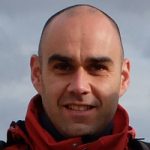
Vasco Ramos
ICS-ULisboa
Vasco Ramos (Lisbon, 1976), is a postdoctoral researcher, with a PhD in Sociology from the University of Lisbon. Among other interests, his research has focused on issues such as social inequality, class and mobility, and family sociology. More recently, he has focused on food, food practices and human-animal studies. Currently, he is a researcher at CLAN, conducting ethnographic work with children and pets, with interest in understanding how specific categorisations of non-human animals relate to food practices and preferences.
Since 2009 he has worked on several projects at ICS-UL, namely on a research project on family trajectories and social networks, coordinated by Karin Wall. Currently, he is part of the Life research group LIFE – Life Course, Inequality and Solidarities: Practices and Policies. He also collaborates with OFAP – Observatory of Families and Family Policies. As a postdoc researcher, he was part of the Portuguese team working on the ERC funded research project Families and Food in Hard Times. Since August 2017, he is developing a research project (based on an individual post-doctoral fellowship from the FCT) entitled Living with Uncertainty: Enduring Precariousness over the life course.




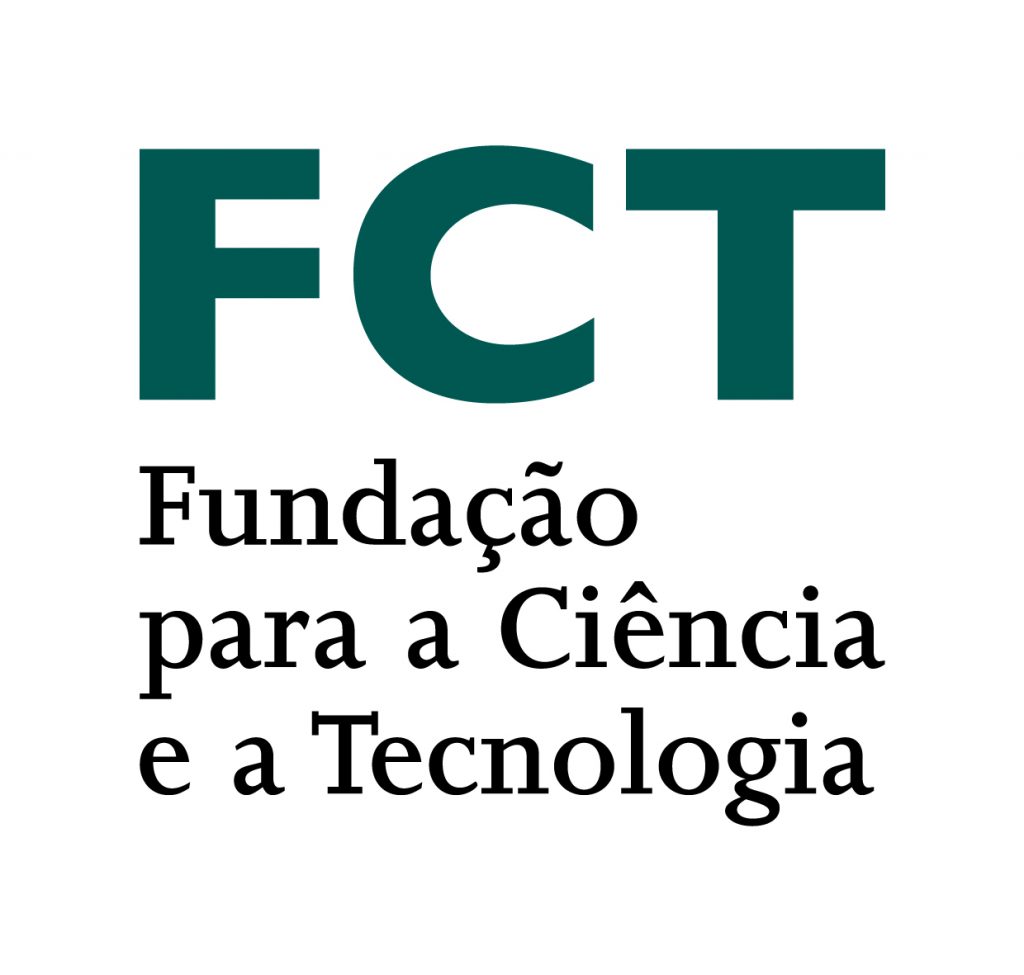
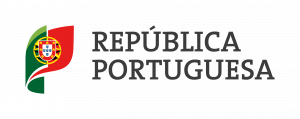
Instituto de Ciências Sociais Av. Professor Aníbal de Bettencourt, 9 1600-189 LISBOA Portugal
clan@humananimalstudies.net
